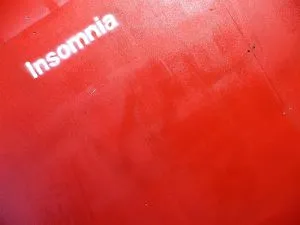The ancient practice of Traditional Chinese Medicine (TCM) offers some insight to the varying causes of sleeplessness. The pairing of acupuncture with herbal remedies can bring relief to patients with chronic insomnia, nightmares, and even sleep apnea.
Patients battling chronic insomnia can tell you that insufficient or poor quality sleep leads not only to irritability and exhaustion, but also to muscle stiffness, impaired cognitive function, fibromyalgia, and other significant health problems. Commonly, Western medicine will search for a physical or emotional problem causing the sleeplessness, but TCM recognizes that insomnia can stem from a fundamental imbalance of energy, or qi. While sleeping pills and anti-depressants are commonly prescribed for insomnia and other sleep disorders, these prescriptions can become addictive and patients can find it difficult to sleep naturally, without pills or medicine in the future. Patients may find better relief through the natural based treatments of acupuncture and herbal remedies.
TCM utilizes a system of pressure points and meridians to track the function and balance of our organs, blood, and energy. It is believed that each organ houses a different aspect of our spirit. For those with insomnia or sleep apnea, the heart and liver are often out of balance, allowing the spirit to wander and disrupt the normal patterns of sleep.
Are you interested in becoming a certified acupuncture professional?
Visit the links below to explore our specialized acupuncture programs at a campus near you:
Individualized Treatments in TCM for Sleep Issues
More specifically, the gall bladder meridian is often to blame for dream-disturbed sleep, manifesting in the form of nightmares or repetitive dreams. Patients who experience difficulty falling asleep typically have an imbalanced liver, while those who sleep too lightly often need to be treated for a heart and spleen deficiency. When the proper insomnia pattern has been identified, a TCM practitioner can personalize a course of treatment.
The most effective course of treatment for insomnia is a combination of acupuncture and a Chinese herbal formula, which should be incorporated into the patient’s diet. The popular herb Suan Zao Ren helps to enrich the blood that flows to the heart and liver while regulating and calming the liver meridian. This is one of the best herbal approaches to treating insomnia due to a liver/heart dysfunction, however, it’s important to remember that a TCM diagnosis is developed specifically for the individual patient. Herbal formulas will often include a variety of herbs depending on that particular patient’s state. The beauty of TCM is that there is no “one solution solves all” formula for everyone, rather, each patient receives an individualized treatment specifically addressing the issues at hand. There are a variety of Chinese herbal formulas that have been shown to help those with insomnia to sleep more deeply and to achieve restful sleep for longer periods of time.
Pairing an herbal remedy with regular acupuncture treatments is critical for success. A series of thin needles are used to apply pressure very carefully to specific points along the surface of the skin. Clinical studies have shown that acupuncture helps release extra neurotransmitters into the central nervous system, including serotonin which regulates sleep patterns. As a result, acupuncture can be used to improve the quality of sleep without the sluggish side effects associated with most sleeping pills.
Featured Posts:

